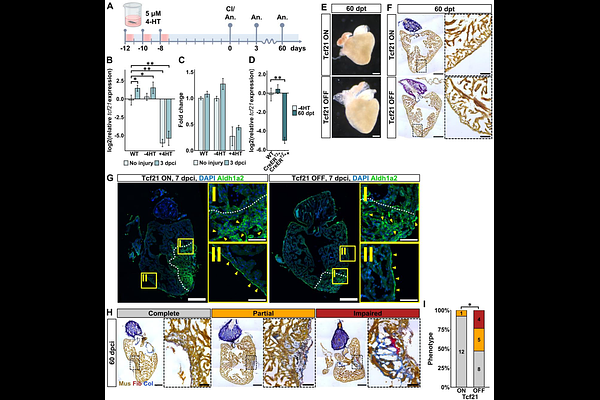Epicardial Tcf21 facilitates cardiomyocyte dedifferentiation and heart regeneration in zebrafish

Epicardial Tcf21 facilitates cardiomyocyte dedifferentiation and heart regeneration in zebrafish
Balciunas, D.; Kalvaityte-Repecke, M.; Gabrilaviciute, S.; Kvederaviciute, K.; Bakunaite, E.; Burg, L.; Poss, K. D.
AbstractUnlike mammals, zebrafish (Danio rerio) are able to regenerate their hearts after injury, making them an excellent model organism for studying the molecular mechanisms underlying heart regeneration. Epicardium, the outermost layer of the heart, is an essential player in this process. Injury-induced epicardium activation, characterized by the expression of embryonic epicardial marker genes including tcf21 supports cardiac regeneration by providing various cell types and releasing paracrine signals that promote the restoration of damaged tissue. However, the molecular mechanisms involved in this process are insufficiently understood. In this study, we describe a conditional tcf21flox allele and use it to investigate the role of Tcf21 in heart regeneration. By employing 4-hydroxytamoxifen inducible CreERT2 recombinase, we eliminated tcf21 expression in adult fish. Our findings indicate that loss of this transcription factor reduces the presence of dedifferentiated cardiomyocytes in the injury area and impairs heart regeneration. This work provides new insights into the molecular basis of the epicardial response to heart injury and its role in guiding heart regeneration.